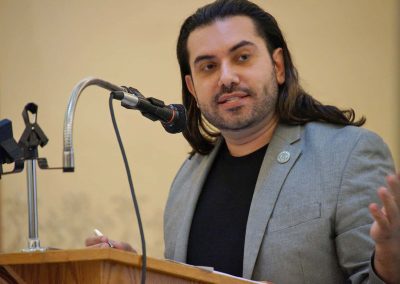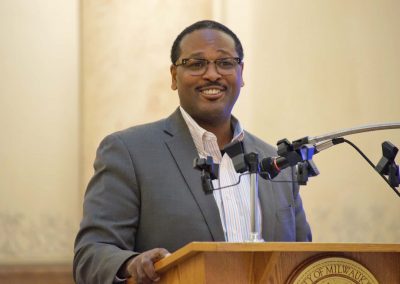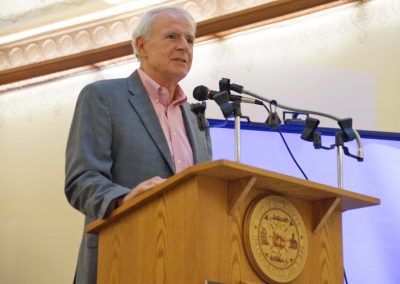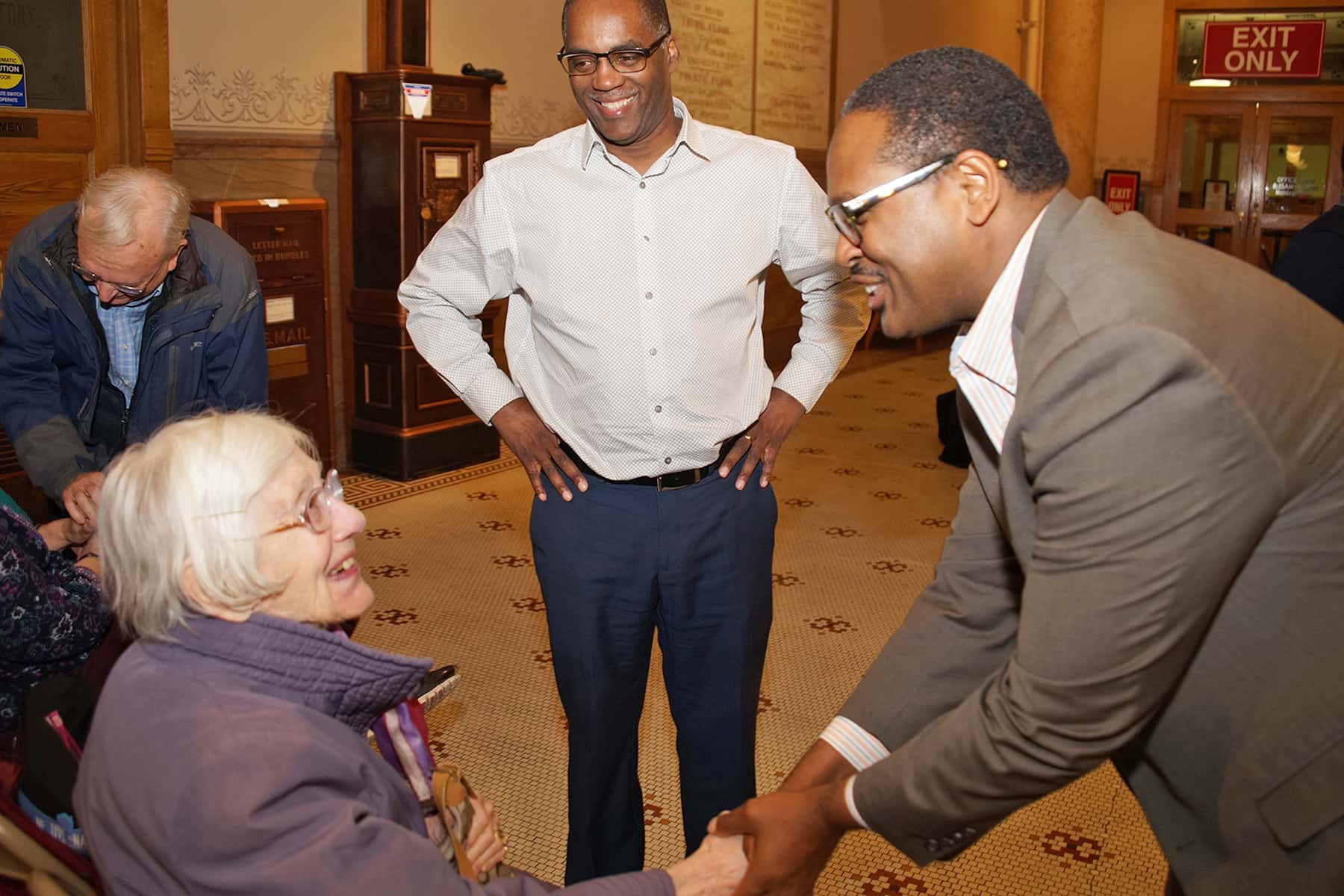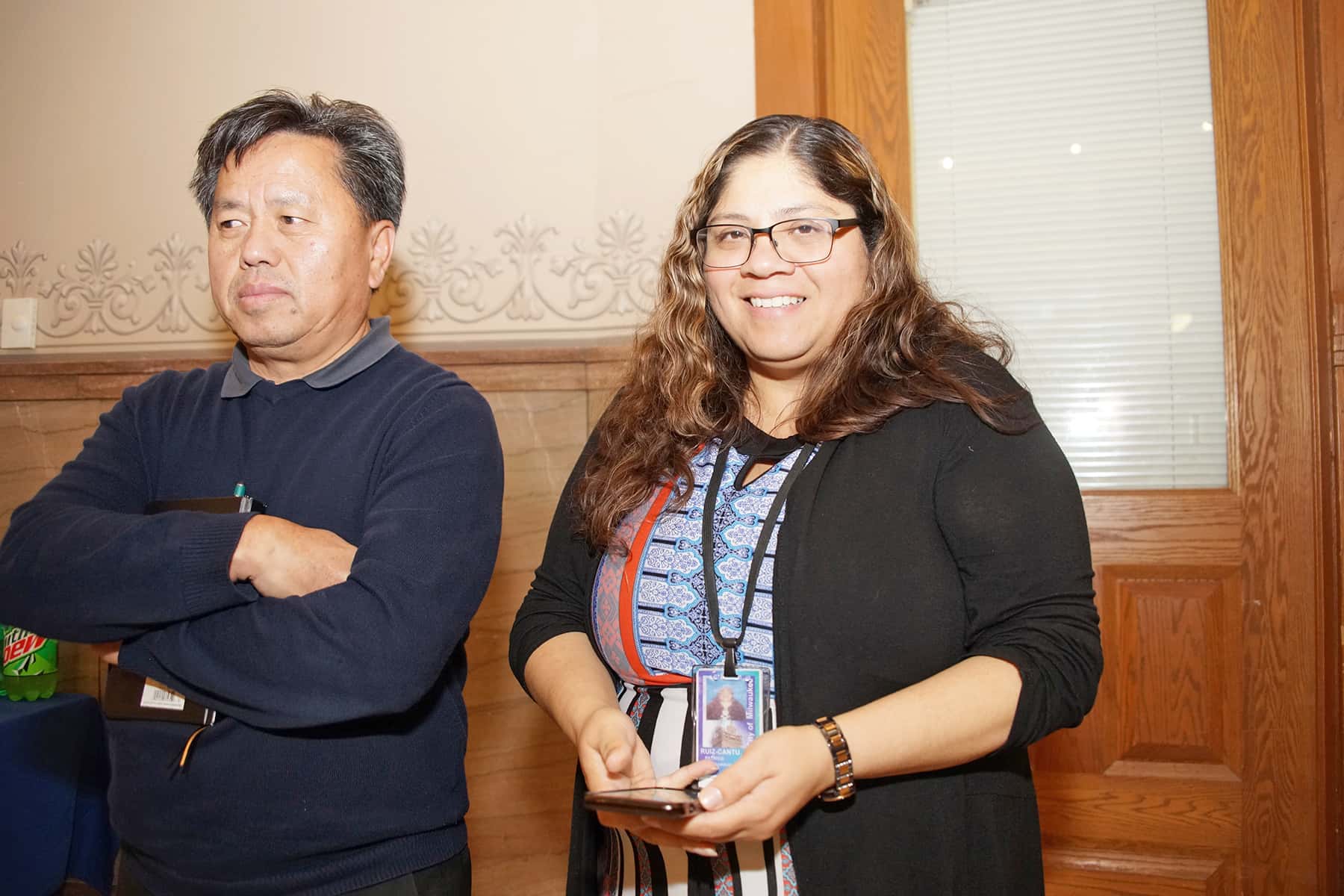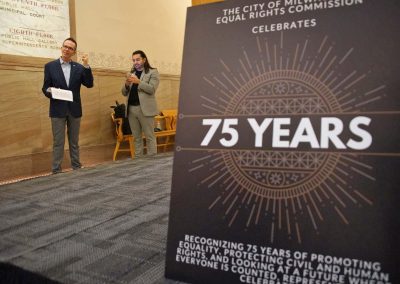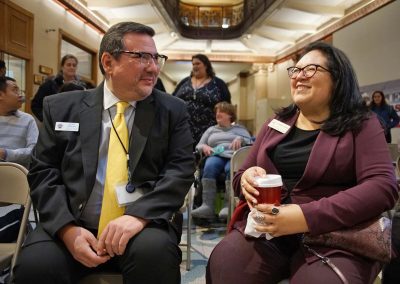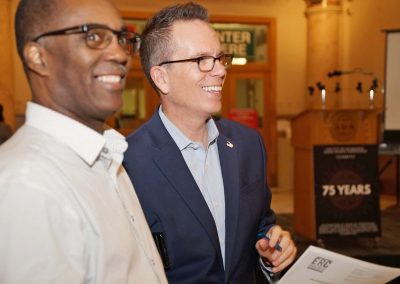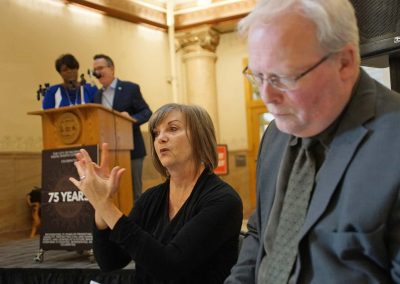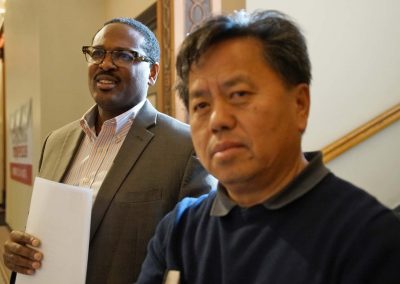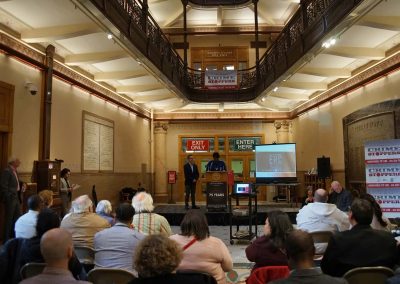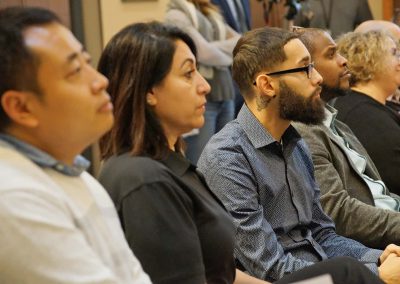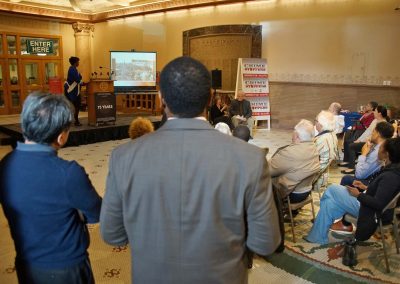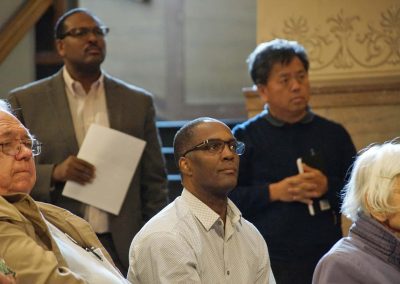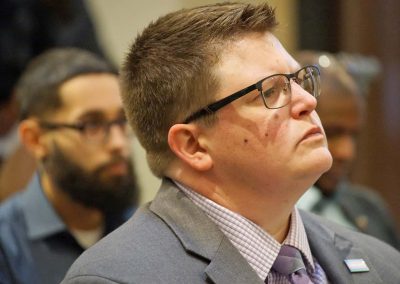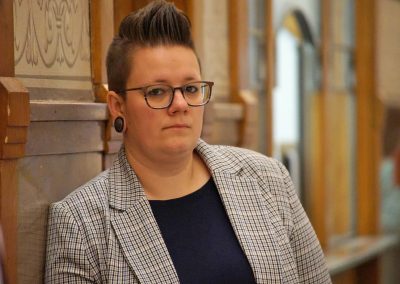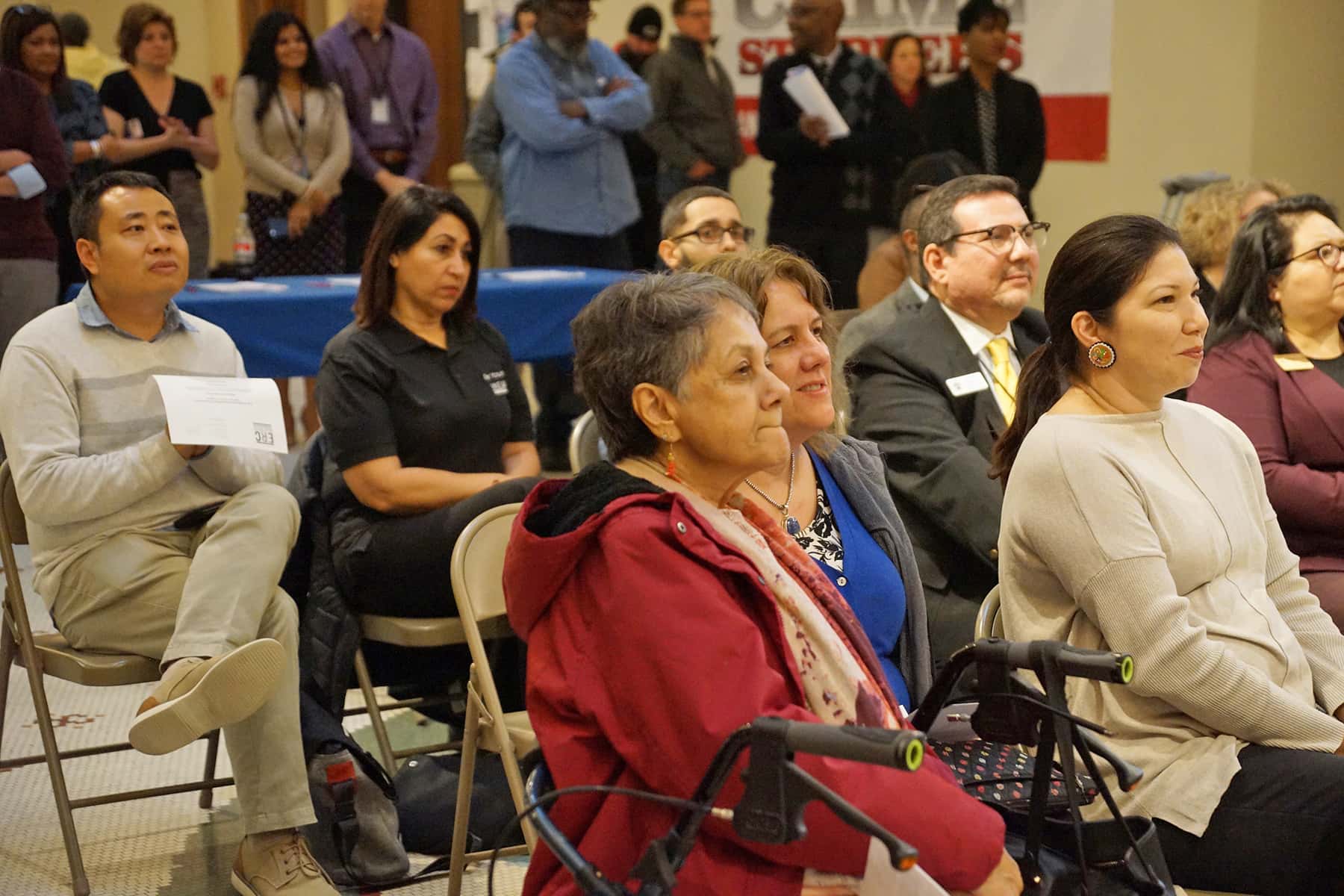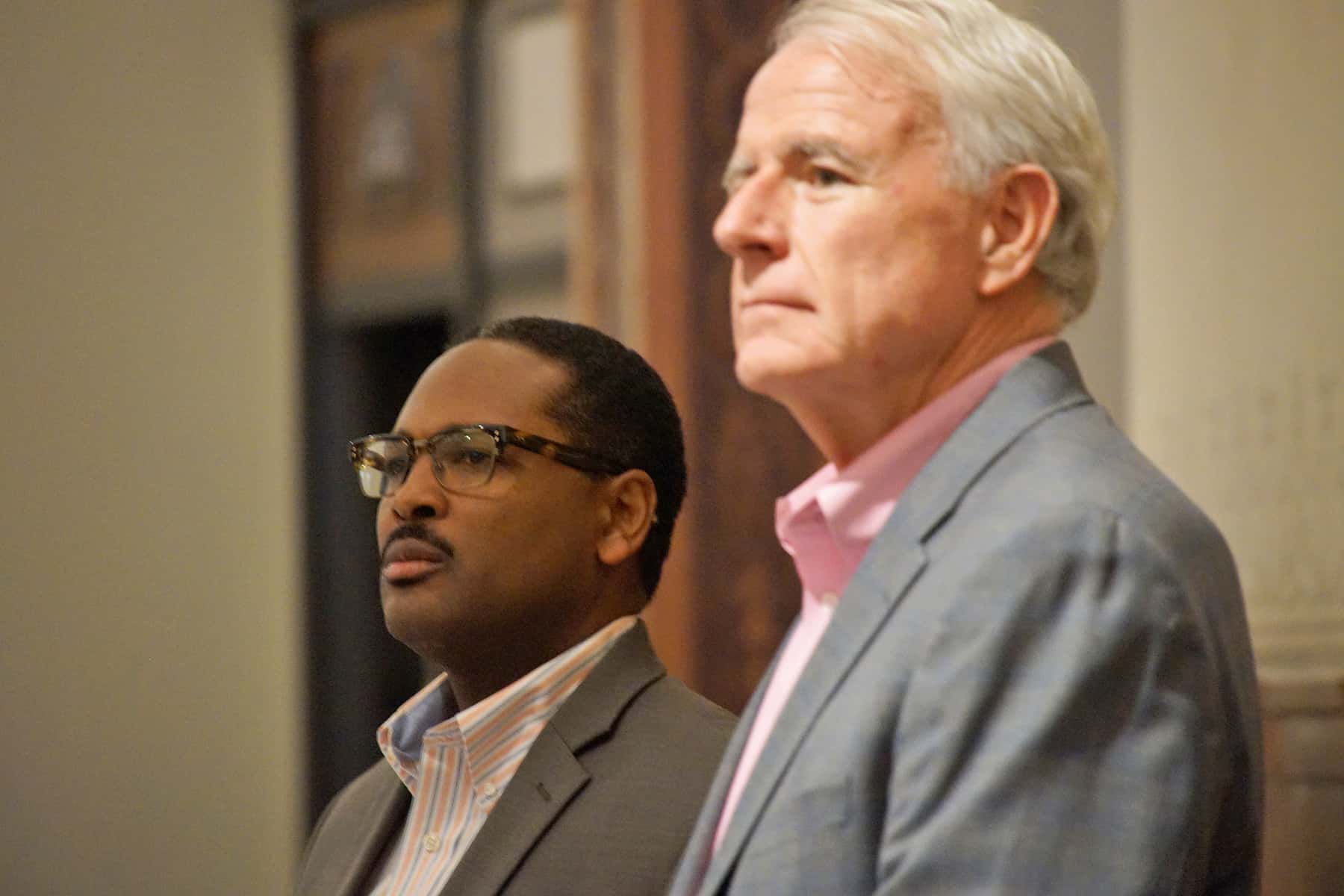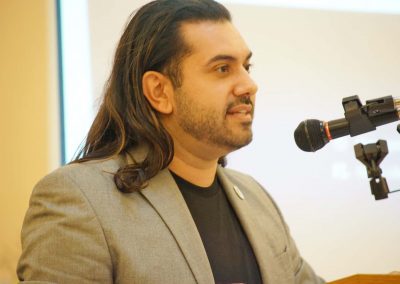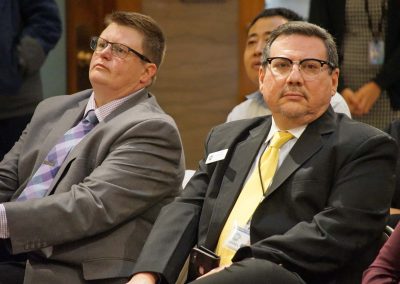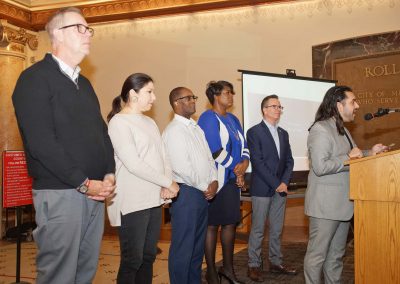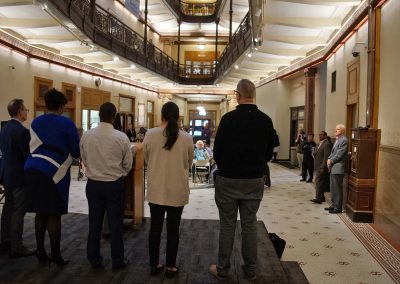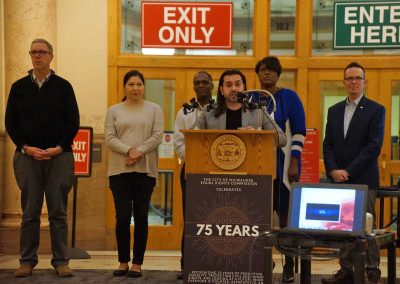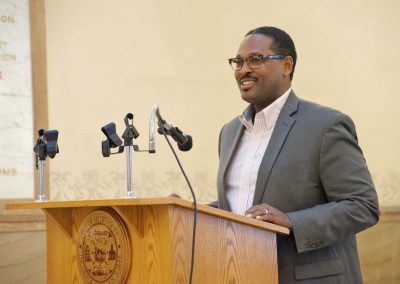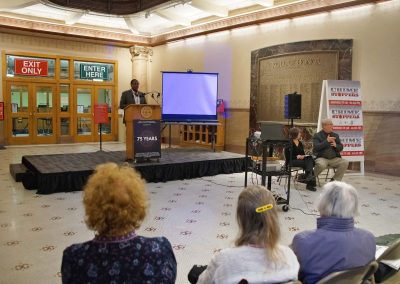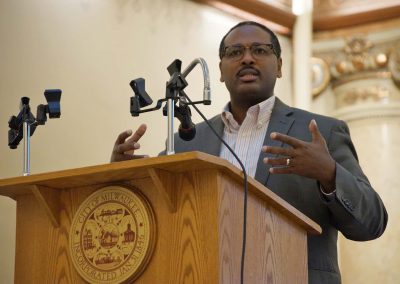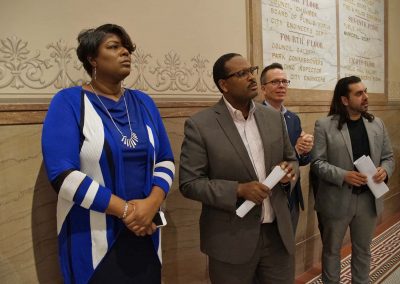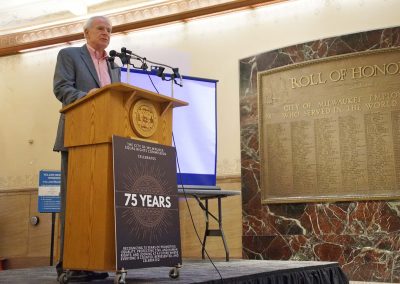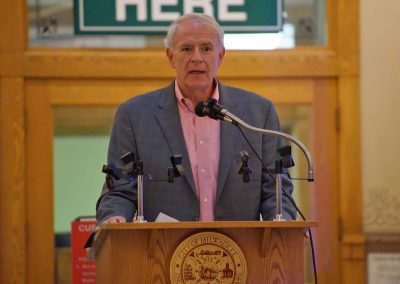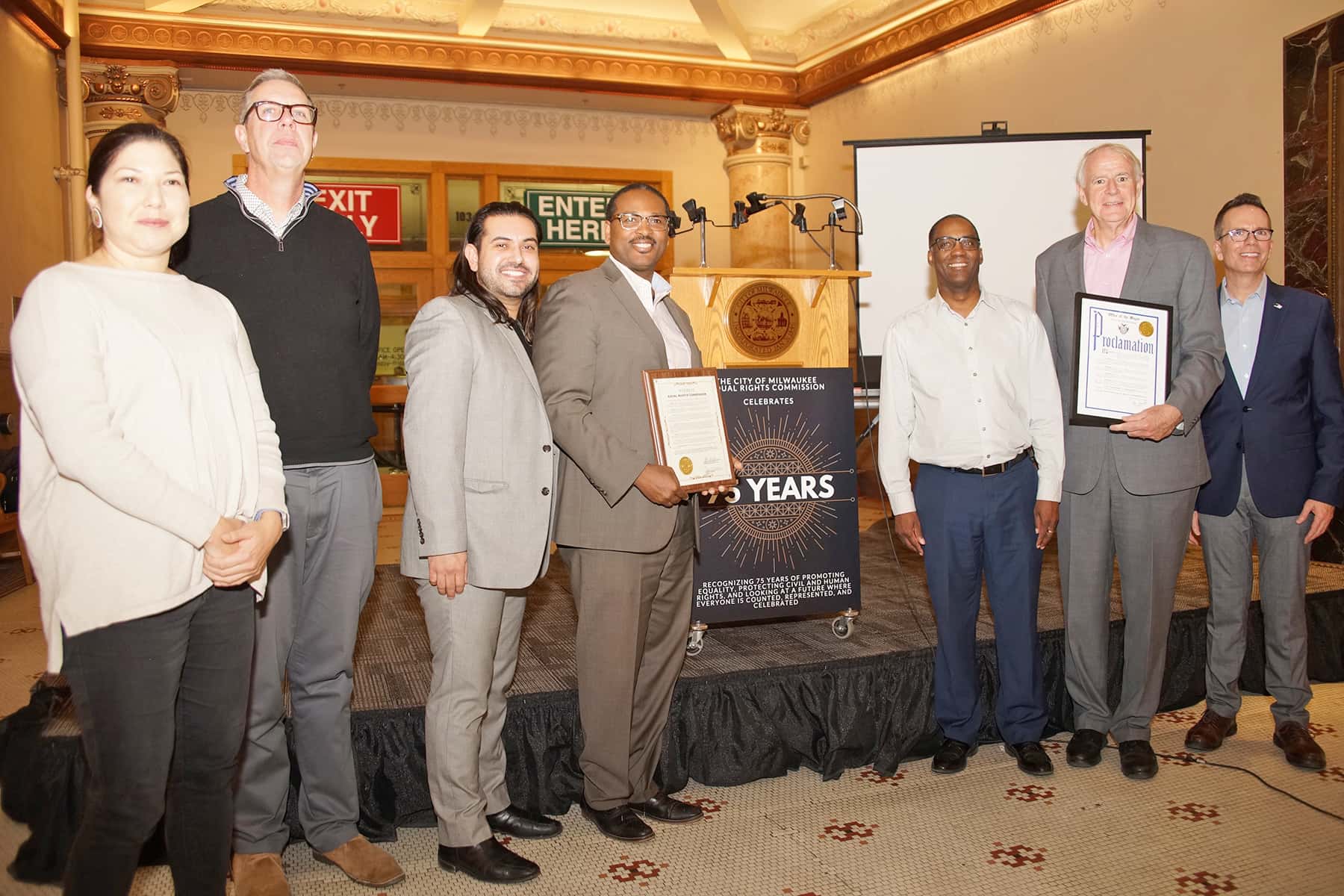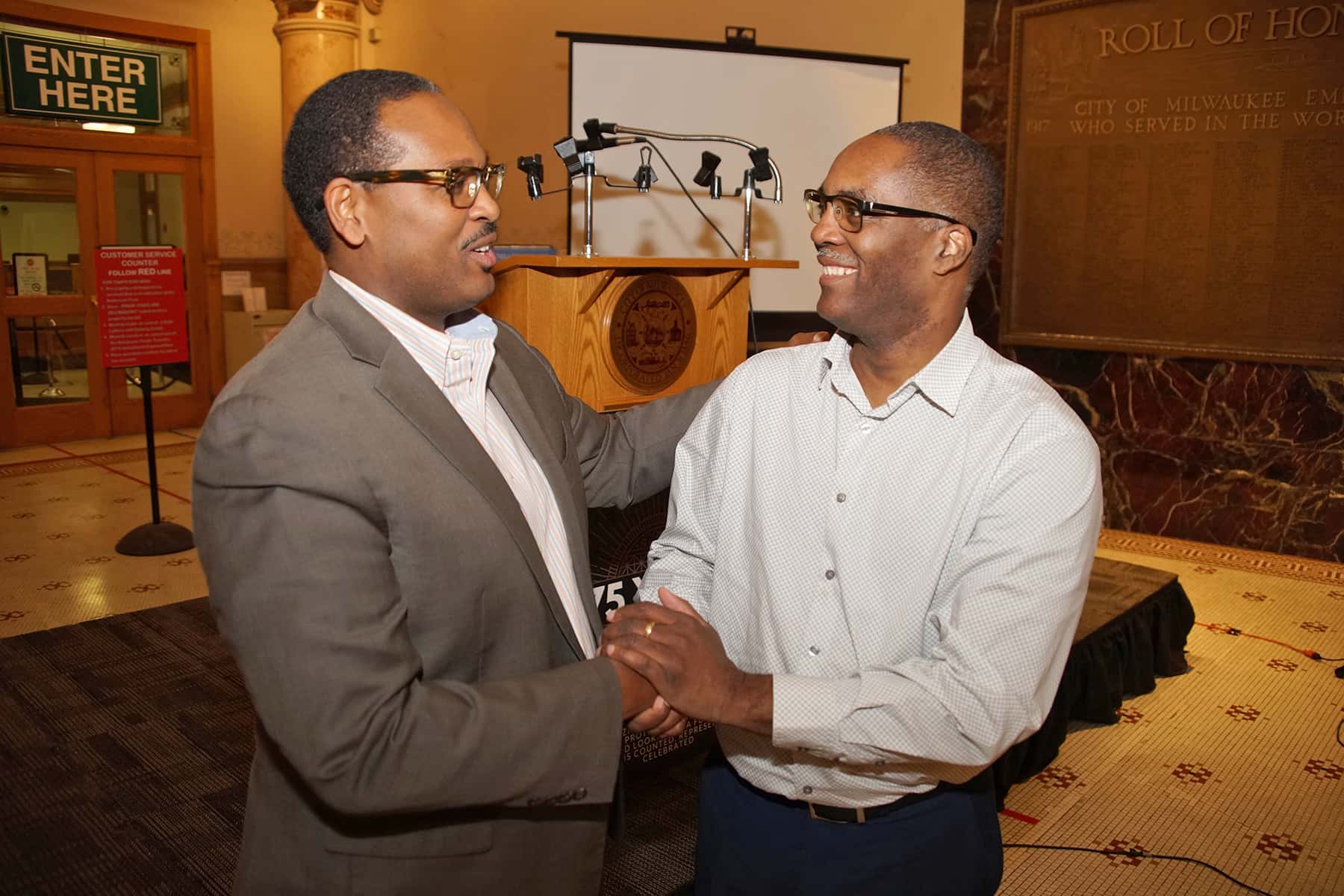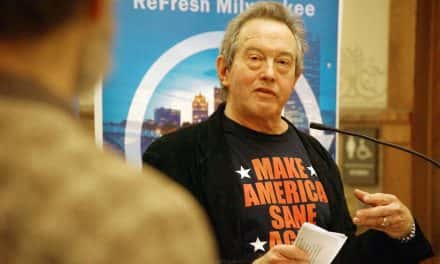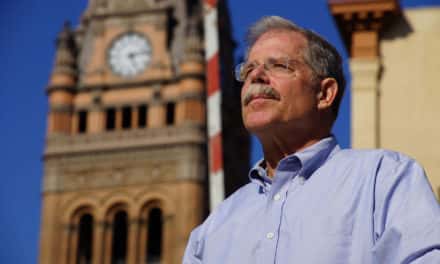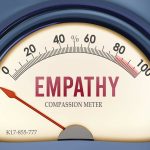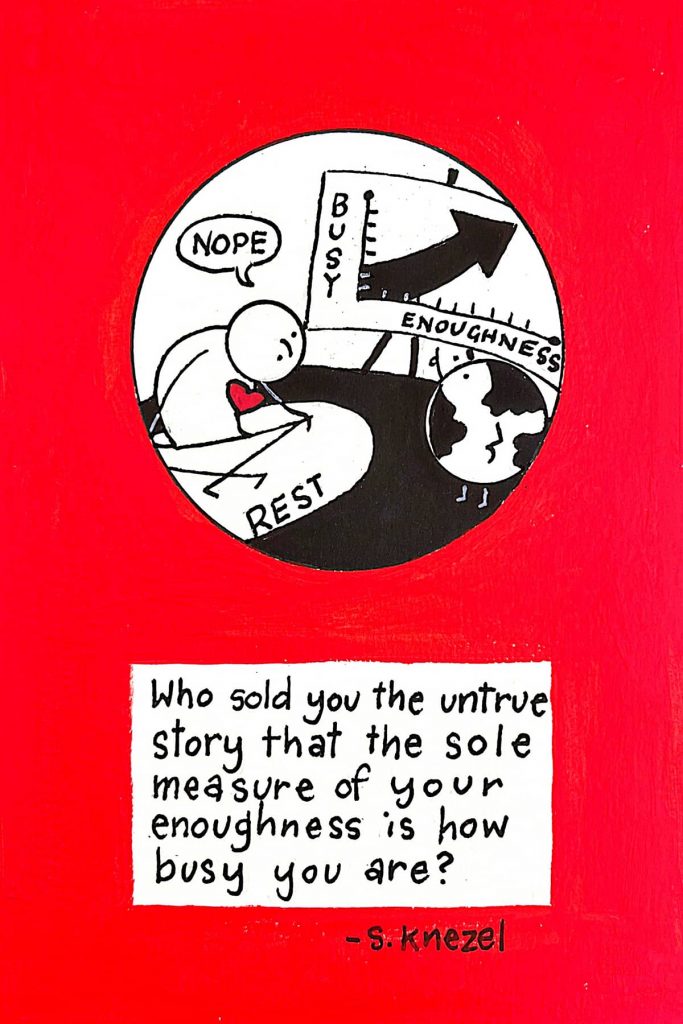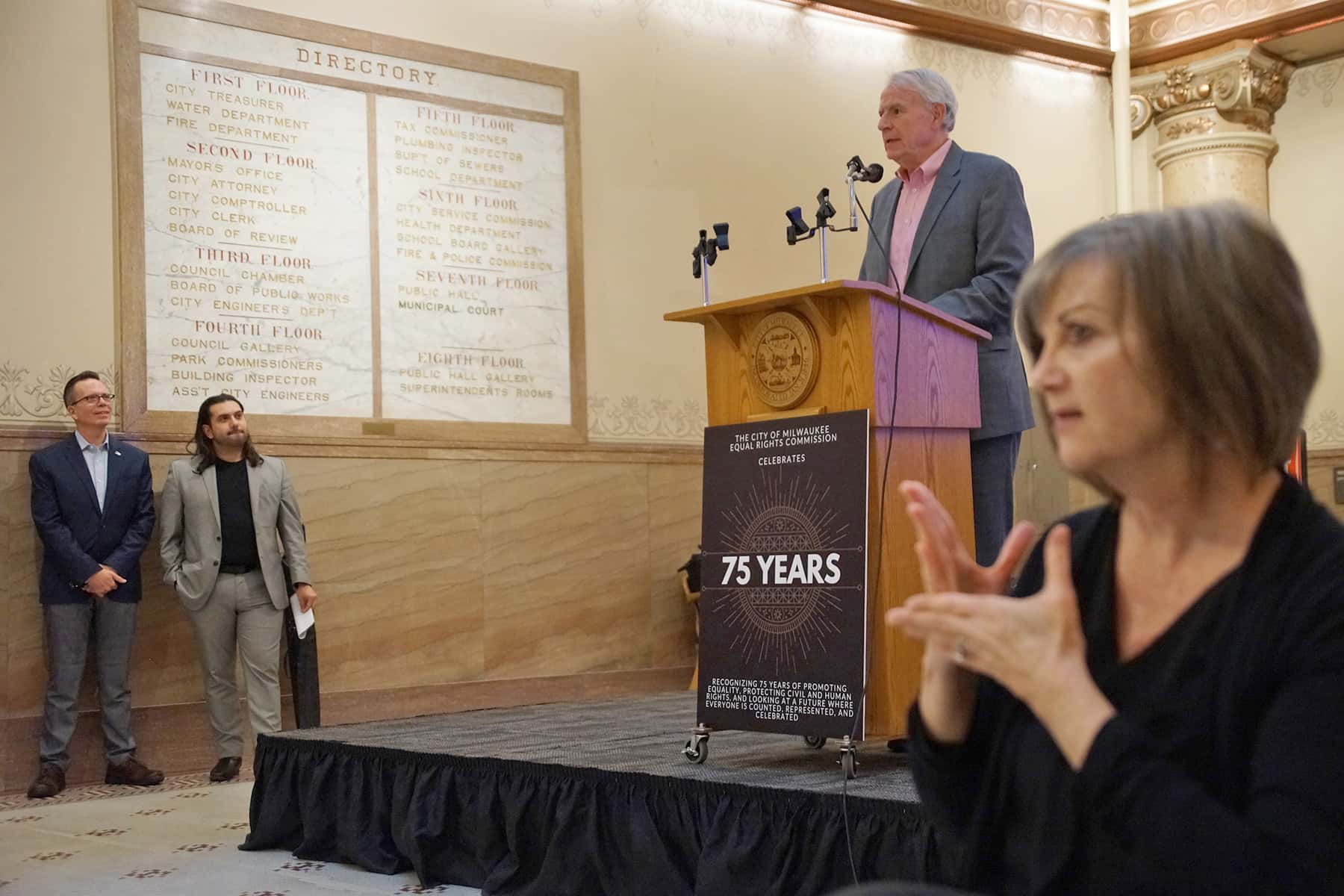
Milwaukee celebrated the 75th Anniversary of its Equal Rights Commission (ERC) on October 16 in the rotunda of the historic City Hall, highlighting a mission of inclusivity and the resulting impact of its efforts for the local community.
The city’s ERC was created in 1944 during the closing days of World War II. It was originally founded as the Mayor’s Committee on Inter-Racial Relations, by then Milwaukee Mayor John Bohn. The purpose was to form a committee to examine issues with the city’s growing black community, make recommendations on how to improve those issues, and support policies that would make those improvements possible. Once of the Commission’s recent accomplishments was working with the city to declare racism a public health crisis.
“For all those gathered here to honor this special anniversary, we are enormously grateful for your commitment, support, and partnership with the commission over the past decades,” said Commissioner Tony Snell. “We are fortunate to have such a diverse and inclusive coalition of people and groups committed to working together on equity, equality, and justice for all. It’s a real honor to work alongside such devoted and passionate people.”
In the 1940s, Milwaukee’s black population started to grow rapidly, as a result of job openings being created for the war industry and a labor shortage. As the black community expanded, conflicts with the white community followed and Mayor Bohn realized that the city struggled to deal with many of those issues.
As the city continued to evolve, so did the ERC to more broadly encompass Milwaukee’s people and better address its challenges. The transformation of the ERC is reflected in the name changes it underwent over its 75-year history. Just five years after its founding, the Mayor’s Committee on Inter-Racial Relations became the Milwaukee Commission on Human Rights. Community relations, fair housing, employment, and neighborhoods would make their way into the commission’s name and into their ever-expanding areas of focus.
The Equal Rights Commission as it is known today was made official in 1994. Initially serving as the first point of contact for concerns and complaints of unfair treatment, ERC soon grew to take greater action as well as including more protected categories from race and sexual orientation to housing and employment.
“The current ERC mission statement is to promote and protect equality, equity, and human rights, through education, enforcement, and community engagement,” said Chez Ordoñez, acting chair of the ERC. “It’s much more than an enforcement agency or a watchdog, it’s a community partner. It’s a protector, it’s counsel, it’s a friend, and then, when need be, it’s someone to actually have your back.”
ERC worked behind-the-scenes and on the front lines of many initiatives to make Milwaukee a more inclusive city. In response to an increase in discrimination complaints in the early 1990s, the ERC partnered with local organizations to fight issues like unfair employment and housing practices. That fight included media campaigns to raise awareness, organizing and facilitating community meetings and forums, contributing resources to investigations, and public opposition to policies and practices that could foster discrimination.
“The Commission keeps things moving forward in this city, bringing the type of commitment and the energy needed in order to overcome the inertia of complicity,” said Common Council President Ashanti Hamilton. “Sometimes progress feels like a rocking chair, moving but not going anywhere. I don’t want just movement for the sake of motion, I want us to be progressive. I want us to move forward with momentum, so we are able to bring everybody to the table. That remains the vision.”
President Hamilton talked about how people have always embraced the idea of equal rights in principle. But historically, many individuals stay silent and do not stand up for those rights. Or stand in the way of progress, in part because of a lack of education. The ERC offered an organizational structure for the city to fight against those obstacles.
“I am eternally grateful for the mission and commitment from City of Milwaukee, so that we can be a beacon of light to shine on the rights of the people who live here,” added President Hamilton.
In 2007, the ERC worked with the Common Council to amend protected categories to include gender identity or expression, past or present membership in military service, and familial status. In 2017, ERC worked again with the Common Council to recreate that ordinance to include domestic partners, victims of domestic abuse or sexual assault, HIV-positive persons, and homeless individuals. The recreation even provided protection on the basis of genetic identity. A current initiative that ERC is working on is to expand its power to better enforce anti-discrimination as well as better engage communities.
“I see our Equal Rights Commission as being a voice of morality at the local level. That’s how important the function of this Commission is, with part of its function to challenge us to do better,” said Mayor Tom Barrett. “I think we all recognize, we can do better and we need to do better to make sure that all people are treated with respect and dignity. All people have a right to a job where they can support their families, live in respectable housing, be treated as a human being, no matter who they are, what their religion is, what their sexual preferences, what their racial background is, what their income level is. We need to respect each other as human beings. And we need to provide equal rights under the law to ensure that’s a reality.”
© Photo
Lee Matz

